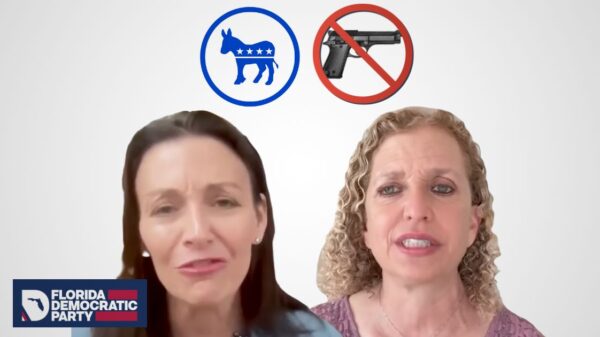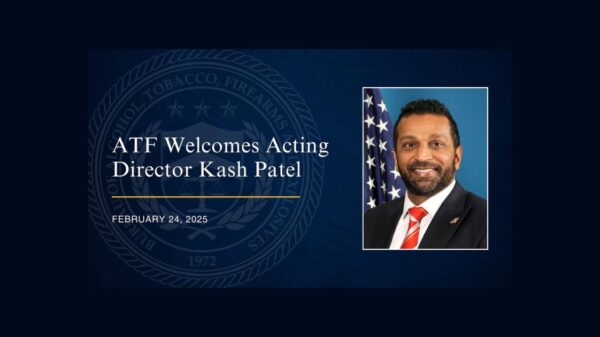In an interview presented this week on NewsNation’s “Cuomo,” hosted by Chris Cuomo, which runs weeknights at 8 PM ET, U.S. Rep. Bryan Donalds, R-Fla., discussed the recent shooting in Louisville, the red flag laws and other circumstances like mental health.
On whether the topic of guns is too politically divisive, Donalds said, “You have to have a thoughtful argument. And you have to acknowledge the merits on both sides of the situation. And I think if you can get to that politically, you can actually get somewhere.” He added, “this is the most in-depth and actually thoughtful conversation on this topic I’ve ever had.”
Asked if he thinks the topic of guns is too politically divisive, Donalds replied as follows:
“In part, yeah, I think if you’re going to be dogmatic about the conversation, then both sides is gonna retreat to their side. And it’s an unfortunate reality of politics, because that’s not even politics. That’s just peep. If you’re not going to at least acknowledge my side of an argument to why I’m not going to deal with yours. I will tell you on camera live, this is the most in depth and actually thoughtful conversation on this topic I’ve ever had. Because typically it dog years back to the dogma, I want to ban assault weapons. I want to protect the Second Amendment, which, obviously is the United States Constitution. So protecting the Constitution is my job. But that being said, everybody retreats to their side of the argument. If you’re going to do this, you got to have a data driven argument. You have to have a thoughtful argument. And you have to acknowledge the merits on both sides of the situation. And I think if you can get to that politically, you can actually get somewhere.”
Asked about mental health and shootings, Donalds answered:
“Well, first, let me talk to actually the mental health aspects because honestly, I believe if you look at the last 10 years of mass shootings, whether you talk about in schools, or whatever the situation is, every one of them dealt with a gunman who had serious mental health issues. The family knew about it, the neighbors were concerned, there was somebody in the orbit who was like, oh, wait a minute, this could be a potential problem. So if you look at them virtually all, that’s what is the consistent factor. So I think if you’re gonna talk about states and the federal government getting into investments in mental health things, we’ll talk about ways to identify help people get the help that they need. I think that one has real legs on both sides of the aisle. Frankly, the issue is a lot about what you said, it’s become this choice of, we’re gonna go down this line of an assault weapons ban, or universal background checks. So wherever you whilst you’re saying, and in my party in the Republican Party, like we’re not saying, No, we’re not banning assault rifles, quote, unquote, we’re not banning rifles. universal background checks, pretty much exists today, except if I chose to sell my gun to you. But if we did it at a gun, if I went and bought a gun at a gun show, and I’ve bought two guns at a gun show, I go through a background check. If you go to any arms deal, any federally licensed firearms dealer, you go through a background check. It’s just private party sales. Private party sales really aren’t that much a percentage of overall gun sales in the United States. So I think that’s it’s the dogmatic pieces of the gun debate, which is which stops stuff like actual mental health, not just screenings, but providing the access to resources for people who frankly are falling through the cracks.”
Asked about red flag laws, Donalds replied:
“No, I think you hit on the issue with red flag laws risk protection orders, is something that was done in Florida when I was in the legislature to be transparent. I did not support the risk protection orders in Florida. Here’s why, because of what you just said, a family member, somebody says there’s an issue over here, then the law enforcement comes and they take the legal property of the person, and now they have to go to court to get their property back. I think that situation is reversed. If somebody is going to bring a claim of real serious mental health issues. Making the claim is one thing. That person having to go through whatever that process is another but if you take their property from them, and then it’s found out that that wasn’t the case. Now you have a taking which is you know, you have a you know, give or take in somebody’s property that is unconstitutional. They have to go prove their innocence to reclaim their property. That’s a serious issue for people on the right side of politics or however you want to say it.”






















